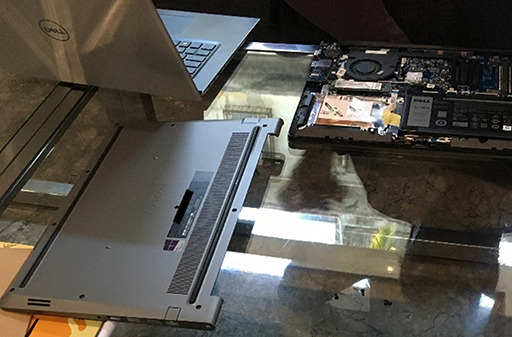4 Developing your digital confidence and curiosity
HEIs by their nature encourage continuous learning and being curious. They tend to have informal and formal approaches to this, often with opportunities to ‘play’.
Building digital capabilities is not just about formal training courses on how to use the tools, but also includes informal learning from others, playing with digital tools and being comfortable with learning from failure. Building a digital-first culture, where organisational leaders lead by example, by focusing on people, embracing technology and having a shared vision that is communicated, encourages digital confidence and curiosity (Slack, [Tip: hold Ctrl and click a link to open it in a new tab. (Hide tip)] 2022).
Activity 10 How digitally confident are you?
Reflect on the questions below, and then place your vote in the poll.
I am happy to try new things.
I will work out solutions.
I don’t mind not knowing how to do something.
Depending on how comfortable you are with ambiguity and your own confidence, developing your digital capabilities (and transformation) will either be an opportunity to have fun and push the limits of what can be done or may be bewildering and scary. Individuals may be afraid they will break something, do something wrong, or lose something. The latter is unlikely these days, as now most organisations use cloud-based services. As long as you are saving your work in the correct place (for example, not on your computer desktop) most things are retrievable and you can usually access previous versions.
Occasionally things do go wrong that are not fixable – and usually this is not your fault! This was my laptop that just stopped working due to a total hardware failure. However, I didn’t lose any of my work or files as it was all on the servers – in the cloud – and accessible when I logged onto my new laptop.
Learning from others is an essential part of developing your own digital capabilities. Often someone can help you use a digital tool, giving you insights into the way you approach a task or encourage you to do your own research to enhance your understanding.
If you are reimagining products, processes and systems you may have no idea what is and isn’t going to be successful. You will have to learn to have the confidence to develop the mindsets and expectations of the stakeholders while being comfortable with stopping or adapting developments. You may need to draw on the data available and gain input from subject matter experts to make decisions.
More leaders are participating in ‘reciprocal mentoring’ – which normally involves a junior employee mentoring someone more senior than them, but those in the same roles can also benefit from this approach to consider different approaches to digital tasks and learn from each other.
It is important to acknowledge that the capabilities and skills of individuals will vary. For example, don’t assume that younger people are automatically experts in using all types of technology: they might be competent using mobile devices and apps, but not tools for work e.g., Microsoft Office 365 or Google Drive. They may also lack the behavioural experience for working online in the workplace.
Have the confidence to ask questions and share your own experiences within your team or those with specialist skills, to create opportunities to build collaboration and confidence within teams and the organisation.
As you become more digitally competent and confident, share your knowledge and support others. Learn to listen and see what is happening in digital environments. If you are curious and not afraid to admit you don’t know how to do something, most people are more than happy to show you. This not only develops your skills but fosters a culture of sharing and trust with those you work with, and encourages those who might be in a junior role or new to the organisation to be more confident in contributing to discussions.

